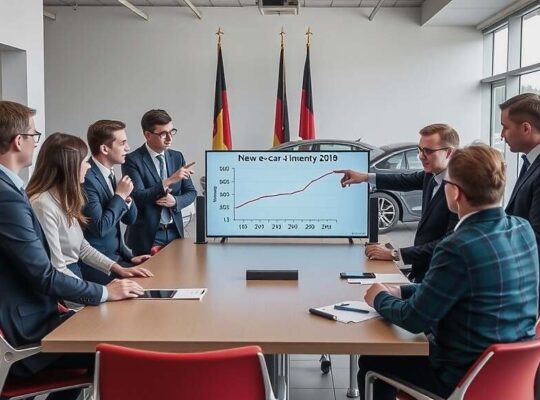The German government is actively exploring an income-dependent subsidy model for electric vehicle leasing, a move signaling a potential shift in approach to accelerating the nation’s transition to electric mobility. Federal Transport Minister Patrick Schnieder (CDU) confirmed the deliberations in an interview with the “Neue Osnabrücker Zeitung”, citing France’s existing social leasing programs as a potential blueprint.
Schnieder’s proposal arrives amidst ongoing efforts to incentivize electric vehicle adoption. Existing measures include the extension of exemptions from vehicle taxes until 2035 and the ongoing expansion of charging infrastructure. However, the planned income-dependent leasing scheme indicates a recognition that current subsidies may be failing to reach all segments of the population, particularly lower-income households.
Critics argue that simply extending tax breaks and building more charging stations isn’t enough to address the core issue of affordability. The initial emphasis on market-driven incentives has left many potential buyers feeling excluded, widening the gap between early adopters and those who would benefit most from cheaper, cleaner transportation. A social leasing model could be interpreted as a concession to these criticisms, attempting to address concerns about equity and accessibility.
However, the plan is not without potential pitfalls. Implementing an income-dependent system is likely to be complex administratively, requiring robust verification processes to prevent fraud and ensuring equitable allocation of resources. Furthermore, the financial implications for the government, already grappling with budget pressures, remain significant and will likely fuel debate within the ruling coalition. The prospect of additional purchase incentives, separately mentioned by Schnieder, further complicates the financial landscape. The success of this new approach will hinge on careful design and execution, ensuring it truly promotes inclusive electric vehicle adoption without creating unintended consequences.












